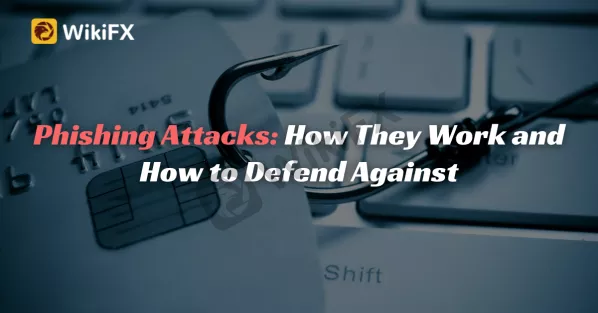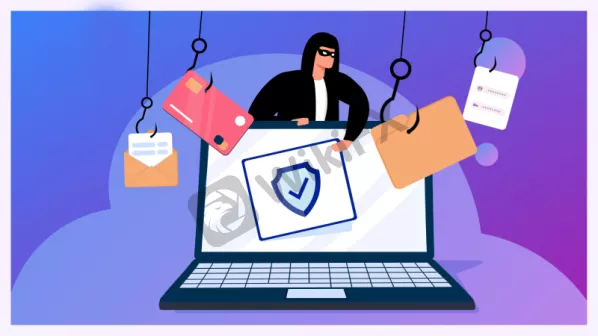
Phishing is a sort of internet fraud in which attackers attempt to deceive victims into providing sensitive information such as passwords, financial information, or personal information. They often utilize bogus emails or websites that seem official in order to trick victims into submitting their information. It is critical to exercise caution when receiving emails or communications from unknown sources and to avoid clicking on links or downloading files from untrusted sources. If you get an email or communication that seems questionable, you should confirm the sender's identity before proceeding.
WikiFX always tags the broker's status depending on their authenticity. All of the information required to determine if the individual who called you is a legitimate employee of a legitimate internet broker. This is one of the simplest and most beneficial methods WikiFX provides to assist people to avoid being phished or defrauded.
Phishing attacks may be carried out in a variety of ways:
-
Email phishing occurs when scammers send false emails that seem to be from a reputable firm or organization. These emails may include links to bogus websites or malware-infected files.
-
SMS phishing occurs when scammers send text messages with links to phony websites or request personal or financial information.
-
Scammers construct bogus social media profiles or send private messages with links to false websites or demand personal information.
-
Phone phishing occurs when scammers contact and pose as a representative of a reputable firm or organization, requesting personal or financial information.

To protect against phishing attempts, be cautious when receiving emails or messages from unknown sources, and avoid clicking on links or downloading files from untrusted sources. If you get an email or communication that seems questionable, you should confirm the sender's identity before proceeding. Use strong, unique passwords for each of your accounts, and activate two-factor authentication wherever feasible. Be suspicious of emails or communications that create a feeling of urgency or need you to respond immediately, and use caution while purchasing online or sending personal information to strangers or organizations.
Other ways to defend oneself against phishing attempts are as follows:
-
When receiving emails or communications from unknown persons or groups, be careful, particularly if they include links or attachments.
-
Look for indications that a website is not real, such as misspellings, an unusual location, or a lack of security precautions such as HTTPS.
-
For each of your accounts, use strong and unique passwords, and activate two-factor authentication wherever feasible.
-
Be skeptical of emails or texts that generate a feeling of urgency or demand that you respond immediately.
Last words
Phishing is a severe problem that may lead to the loss of personal and financial data as well as the distribution of viruses. To protect yourself and your information against phishing attempts, you must be watchful and careful.
Stay tuned for more Educational news.
Download and install the WikiFX App from the download link below to stay updated on the latest news, even on the go.
Download link: https://www.wikifx.com/en/download.html

Leave a Reply